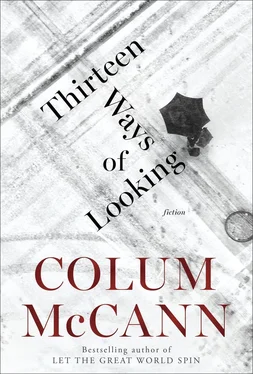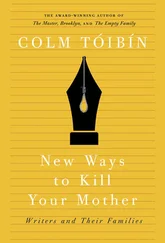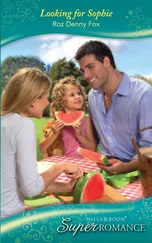There was a raw wedge of thrill in her love for him. The presence of the unknown. The journey out of childhood. The step into a future self.
Some days Tomas took her hand, leaned on her shoulder as they drove through the village, beyond the abandoned schoolhouse, past the whitewashed bungalows toward home. She wanted to clasp herself over him, shroud him, absorb whatever came his way. Most of all she wanted to discover what sort of man might emerge from underneath that very pale skin.
—
TOMAS WORE THE WETSUIT all Christmas morning. He lay on the floor, playing video games, his fingers fluid on the console. Over the rim of her reading glasses, Rebecca watched the gray stripe along the sleeve move. It was, she knew, a game she shouldn’t allow — tanks, ditches, killings, tracer bullets — but it was a small sacrifice for an hour of quiet.
No rage this Christmas, no battles, no tears.
At noon she gestured for him to get ready: the light would fade early. She had two wetsuits of her own in the bedroom cupboard, but she left them hanging, pulled on running shoes, an anorak, a warm scarf. At the door Tomas threw his duffle coat loose around the neoprene.
— Just a quick dip, she said in Irish.
There was no way of knowing how much of any language Tomas could understand. His signing was rudimentary, but she could tell a thing or two from the carry of his body, the shape of his shoulders, the hold of his mouth. Mostly she divined from his eyes. He was handsome in a roguish way: the eyes themselves were narrow, yes, but agile. He had no other physical symptoms of fetal alcohol, no high brow, no thin lip, no flat philtrum.
They stepped out into a shaft of light so clear and bright it seemed made of bone. Just by the low stone wall, a cloud curtained across and the light dropped gray again. A few stray raindrops stung their faces.
This was what she loved about the west of Ireland: the weather made from cinema. A squall could blow in at any time and moments later the gray would be hunted open with blue.
One of the walls down by the bottom field had been reinforced with metal pipes. It is the worst sort of masonry, against all local tradition, but the wind moved across the mouths of the hollow tubes and pierced the air with a series of accidental whistles. Tomas ran his hand over the pipes, one by one, adjusting the song of the wall. She was sure his fingers could gauge the vibrations in the metal. Small moments like these, they crept up, sliced her open.
Halfway toward the water, he broke into a Charlie Chaplin walk — twirling an imaginary walking stick as he bent forward into the gale, feet pointed sideways. He made a whooping sound as he topped a rise and caught sight of the sea. She called for him to wait: it was habit, even if his back was turned. He remained at the edge of the cliff, walking in place. Almost a perfect imitation. Where had he seen Chaplin? Some video game maybe? Some television show? There were times she thought that, despite the doctors, he might still someday crack open the impossible longings she held for him.
At the precipice, above the granite seastack, they paused. The waves hurried to shore, long scribbles of white. She tapped him on the small of his back where the wetsuit bunched. The neoprene hood framed his face. His blond hair peeked out.
— Stay where it’s shallow now. Promise me.
She scooted behind him on her hunkers. The grass was cold on her fingertips. Her feet slid forward in the mud, dropped from the small ledge into the coarse scree below. The rocks were slick with seaweed. A small crab scuttled in a dark pool.
Tomas was already knee-deep in the cove.
— Don’t go any further now, she called.
She had been a swimmer when she was a child, had competed for Dublin and Leinster both. Rows of medals in her childhood bedroom. A championship trophy from Brussels. The rumor of a scholarship to an American university: a rotator-cuff injury had cut her short.
She had taught Tomas to swim during the warmth of the summer. He knew the rules. No diving. Stay in the cove. Never get close to the base of the seastack.
Twice he looked as if he were about to round the edge of the dark rock into the deeper water: once when he saw a windsurfer, yet again when a yellow kayak went swiftly by.
She waved her arms: Just no more, love, okay?
He returned to her, fanned the low water with his fingers, splashed it high around her, both arms in his Chaplin motion.
— Stop it, please, said Rebecca softly. You’re soaking me.
He splashed her again, turned away, dove under for ten seconds, fourteen, fifteen, eighteen, came up ten yards away, spluttering for air.
— Come on, now. Please. Come in.
Tomas swam toward the seastack, the dark of his feet disappearing into the water. She watched his wetsuit ripple under the surface. A long, sleek shadow.
A flock of seabirds serried over the low waves in a taunt. Her body stiffened. She edged forward again, waited.
I have, she thought, made a terrible mistake.
She threw off her coat and dove in. The cold stunned the length of her, slipped immediately along her skin.
—
THE SECOND SHE CLIMBED from the water, she realized she had left her phone in the pocket of her jeans. She unclipped the battery, shook the water out.
Tomas lay on the sand, looking up. His blue eyes. His red face. His swollen lips. It had been easy enough to pull him from the cove. He hadn’t struggled. She swam behind him, placed her hands gently behind his shoulders, pulled him ashore. He lay there, smiling.
She whipped her wet hair sideways, turned toward the cliff. A surge of relief moved along her spine when she glanced back: he was following her.
The cottage felt so suddenly isolated: the small blue windows, the bright half-door. He stood in a puddle in the middle of the floor, his lips trembling.
Rebecca put the phone in a bag of rice to soak up the moisture, shook the bag. No backup phone. No landline. Christmas Day. Alan. He hadn’t even called. He could have tried earlier. The thought of him in Dublin now, with his new family, their tidy house, their decorations, their dramas. A simple call, she thought, it would have been so easy.
— Your father never even phoned, she said as she crossed the room.
She wondered if the words were properly understood, and if they were, did they cut to the core: your father, d’athair, abba ? What rattled inside? How much could he possibly catch? The experts in Galway said that his comprehension was minimal, but they could never be sure; no one could gauge that depth.
Rebecca tugged the wetsuit zip and gently peeled back the neoprene. His skin was taut and dimpled. He laid his head on her shoulder. A soft whimper came from him.
She felt herself loosening, drew him close, the cold of his cheek against her clavicle.
— You just frightened me, love, that’s all.
When darkness fell, they sat down to dinner — turkey, potatoes, a plum pudding bought from an organic food store in Galway. As a child in Dublin, she had grown up with the ancient Hanukkah rituals. She was the first in her family to marry outside the faith, but her parents understood: there were so few Jews left in Ireland anyway. At times she thought she should rebuild the holiday routines, but little remained except the faint memory of walking the Rathgar Road at sundown, counting the menorahs in the windows. Year by year, the numbers dwindled.
Halfway through the meal they put on the party hats, pulled apart the paper crackers, unfolded the jokes that came within. A glass of port for her. A fizzy orange drink for Tomas. A box of Quality Street. They lay on the couch together, his cheek on her shoulder, a silence around them.
She cracked the spine on an old blue hardcover. Nadia Mandelstam.
Читать дальше












